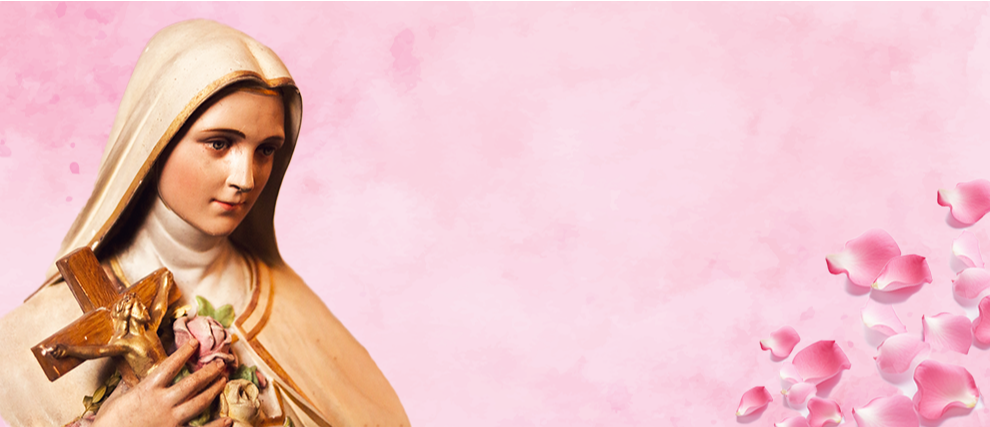The Doctors of the Church
Saint Augustine, Saint Hildegard of Bingen, Saint Francis de Sales… discover who the 37 Doctors of the Church are. They are Christians whom the Church recognizes for their authority in theological doctrine (Eminens Doctrina). The French Bishops' Conference defines them as follows: “the depth of their faith, combined with the accuracy of their thinking and the holiness of their lives give their writings and teachings a lasting and remarkable weight and influence in the development of Christian doctrine.”
Discover all the saints on Hozana!
The Doctors of the Church, summed up
Here are the four criteria that define the Doctors of the Church:
- Orthodox doctrine without notable error,
- Holy Life,
- Canonical approval of life and writings,
- Particular proclamation by the Pope of the exceptional value of education.
The Doctors of the Church are all canonized and this distinction is only conferred posthumously. What distinguishes a Doctor of the Church from a saint is his knowledge, erudition, religious culture, and original thinking aimed at disseminating new knowledge. Among the Doctors of the Church, a body of writings is necessary to assess erudition and the originality of thought. These works mainly consist of correspondences, theological treaties, literary works aimed at refuting heresies, such as the Confessions of Saint Augustine, or Against Heresies by Saint Irenaeus, for example. It should be noted that the Orthodox Church does not recognize the title of Doctor of the Church.
Who are the Doctors of the Church?
Here is the complete list of the doctors of the Church to date (April 2023). In bold, those who are also Fathers of the Church.
- Saint Ambrose (339-397), bishop of Milan, declared a doctor in 1295, by Boniface VIII,
- Saint Augustine (354-430), bishop of Hippo (Annaba in Algeria), declared a doctor in 1295, by Boniface VIII
- Saint Jerome (Jerome of Stridon) (347-420), monk in Stridon, Balkans, declared a doctor in 1295, by Boniface VIII
- Gregory I, known as the Great (540-604), pope, declared a doctor in 1295, by Boniface VIII
- Saint Athanasius of Alexandria (296-373), Patriarch of Alexandria, declared a doctor in 1568, by Pius V
- Basil of Caesarea, known as the Great (330-379), bishop of Cappadocia, declared a doctor in 1568, by Pius V
- Gregory of Naziance (329-390), bishop of Cappadocia, declared a doctor in 1568, by Pius V
- John Chrysostom (345-407), Patriarch of Constantinople, declared a doctor in 1568, by Pius V
- Saint Thomas Aquinas (1225-1274), Patriarch of Alexandria, declared a doctor in 1568, by Pius V
- Saint Bonaventure (1221-1274), Italian Franciscan cardinal, declared a doctor in 1586 by Sixtus V
- Anselm of Cantorbery (1033-1109), English and Italian bishop, declared a doctor in 1720
- Isidore of Seville (560-636), bishop of Seville and Cartagena, declared a doctor in 1722
- Pierre Chrysologue (380-450), Italian bishop, declared a doctor in 1729
- Gregory I, known as the Great (406-461), pope, declared a doctor in 1754, by Boniface VIII
- Pierre Damien (1007-1072), Italian bishop, declared a doctor in 1828
- Bernard de Clairvaux (1090-1153), Cistercian, declared a doctor in 1830
- Hilary of Poitiers (315-367), French bishop, declared a doctor in 1851
- Alphonsus of Liguori (1696-1787), Italian bishop, declared a doctor in 1871
- Francis of Sales (1567-1622), French bishop, declared a doctor in 1877
- Saint Athanasius of Alexandria (380-444), Patriarch of Alexandria, declared a doctor in 1882
- Cyril of Jerusalem (?-387), Patriarch of Jerusalem, declared a doctor in 1882
- John Chrystostom (675-749), Greek, declared a doctor in 1890
- The Venerable Bede (673-735), English monk, declared a doctor in 1899
- Ephrem the Syriac (306-373), Turkish deacon, declared a doctor in 1920, by Benedict XV
- Pierre Canisius (1521-1597), Dutch jesuit, declared a doctor in 1925, by Pius XI
- John of the Cross (1542-1591), Spaniard, declared a doctor in 1926, by Pius XI
- Robert Bellarmine (1542-1621), Italian Jesuit cardinal, declared a doctor in 1931
- Albert the Great (1193-1280), a German Dominican, declared a doctor in 1931 by Pius XI
- Saint Anthony of Padua (1195-1231), an Italian and Portuguese Franciscan, declared a doctor in 1946
- Laurent de Brindes (1559-1619), Italian Capuchin, declared doctor in 1959, by John XXIII
- Saint Teresa of Avila (1515-1582), a Spanish Carmelite, declared a Doctor of the Church in1970 by Paul VI
- Catherine of Siena (1347-1380), Italian Dominican, declared a doctor in 1970 by Paul VI
- Thérèse of Lisieux (1873-1897), French Carmelite, declared a doctor in 1997, by Jean-Paul II
- Jean d’Avila (1499-1569), Spanish priest, declared doctor in 2012, by Benedict XVI
- Hildegard of Bingen (1098-1179), German Benedictine, declared a doctor in 2012 by Benedict XVI
- Gregory of Narek (951-1003), an Armenian monk, declared a doctor in 2015 by Pope Francis
- Irenaeus of Lyon (120-202), bishop and martyr of Smyrna and Lyon, declared a doctor in 2022, by Francis
The examination of doctoral causes
Applications for the election to the title of Doctor of the Church are jointly reviewed by the Congregation for the Doctrine of the Faith and the Congregation for the Causes of Saints, and they are presented to the Pope, who alone is authorized to bestow upon them the prestigious title. Here are the causes being studied:
- Bernardino of Siena, 1380-1444, Italian Fransiscan
- John Henry Newman, 1801-1890, British theologian
- Veronica Giuliani, 1660-1727, Italian Capuchin mystic
- Gertrude of Helfta, 1256-1301, German Cistercian
- Brigitte of Sweden, 1303-1373, Swedish nun
- Marguerite-Marie Alacoque, 1647-1690, French visitandine mystic
- Julian of Norwich, 1342-1416, English mystic John Bosco, 1815-1888, Italian priest Cyril and Methodius, 9th century, apostle brothers of the Slavic Church Lawrence Justinian, 1380-1456, Italian bishop Antoninus of Florence, 1389-1459, Dominican and Italian bishop Thomas of Villeneuve, 1488-1555, Spanish archbishop
- Ignatius of Loyola, 1491-1556, Basque-Spanish theologian
- Vincent de Paul, 1581-1660, French priest
- Louis-Marie Grignon de Montfort, 1673-1716, French priest.
- Jean-Eudes, 1601-1680, French priest.
Quotations from Doctors of the Church
Here are some selected quotes from Doctors of the Church:
Francis de Sales:
“Do not speak of Jesus unless you are questioned, and live in such a way that you are questioned”. “Noise does not do good, and good does not make noise”. “We need patience with everyone, but especially with ourselves”.
Thomas Aquinas:
“It is more beautiful to enlighten than to shine alone”
The act is not limited and multiplied unless it is received in a power.
Isidore of Seville:
“Study as if you were to live forever; live as if you were to die tomorrow.”
Jean Chrysostome:
“The reading of the Holy Scriptures is a spiritual meadow and a paradise of delights, much more pleasant than the paradise of yesteryear. God did not plant this paradise on earth, but in the souls of the faithful.” “What's better, tell me? To talk about the neighbor and his business, to inquire curiously about all things? Or talk about angels and things that enrich us?“ If you cannot find Christ in that beggar who is at the door of the church, then you will not find Him in the chalice either. ”
Saint Augustine:
“Go on your way, for it exists only by your walking”. “To be wrong is human, to persist in one's error is diabolical”. “It is better to follow the good path by limping than the bad with a firm step”.
Saint Hilary:
“In the battles we fight to remain strong against evil powers, angels assist us.”
Basil of Caesarea:
“We must not put our hope in the good works of others by neglecting to do it ourselves”.
“The Christian must not be sensitive to human glory, nor attach himself to an exaggerated esteem, but rather reprove those who honor him thus or respect him too much.”
Saint Irenaeus:
“God became man so that man could become God.”
“The glory of God is the living man, and the life of man is the vision of God.”
Pray with the Doctors of the Church in the prayer communities of Hozana
On Hozana, find online journeys to walk with the great saints. From their writings, from their lives, discover their spirituality and how it can nourish your faith today. For example, with with an extract from a work of Saint Augustine each day, or .
You can also choose to .

